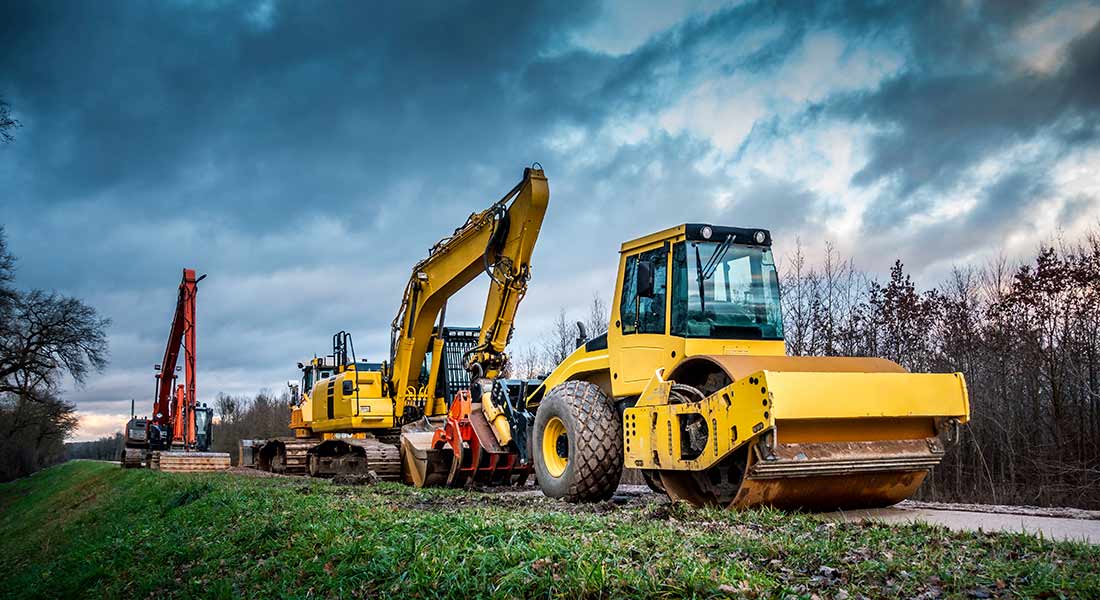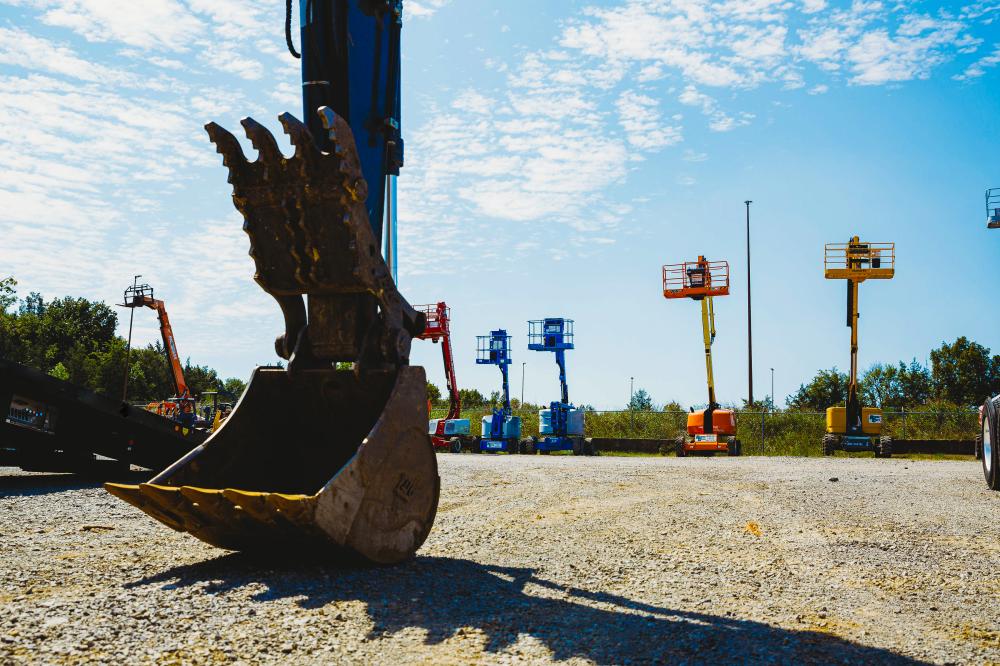Your Service for Equipment Rental Company Services: From Heavy Equipment Rental to Mini Excavator Rental
Your Service for Equipment Rental Company Services: From Heavy Equipment Rental to Mini Excavator Rental
Blog Article
Crucial Tips for Managing Heavy Tools Rental Arrangements and Logistics Properly
Effectively managing heavy devices rental contracts and logistics is important for the success of any kind of project that depends on these sources. A thorough understanding of rental terms, combined with exact evaluation of equipment needs, lays the structure for positive arrangements. Working with transport logistics and preparing for recurring upkeep can substantially decrease unforeseen expenses and hold-ups. The details of these aspects commonly present obstacles that need strategic insight. What are the crucial considerations that can change these potential pitfalls right into opportunities for performance and cost-saving?
Understand Rental Terms
Comprehending rental terms is essential for effective heavy devices monitoring. Knowledge with the details terms of a rental contract can substantially influence operational performance and cost-effectiveness. Key components generally consist of rental duration, payment structure, and maintenance duties. The rental period defines the duration for which the tools is leased, affecting budgeting and job timelines. Repayment structures usually vary, including daily, weekly, or regular monthly prices, which demand exact calculations to avoid unanticipated expenses.
Furthermore, it is critical to understand the maintenance obligations laid out in the arrangement. Commonly, rental business preserve the tools, yet recognizing who is in charge of regular checks and repair services is crucial to stop operational interruptions. Additionally, terms might include clauses concerning obligation for problems or theft, which can have serious monetary ramifications if not effectively comprehended.

Assess Equipment Requirements
Examining devices requirements is a vital action for any kind of project manager intending to optimize source allocation and enhance functional performance. This procedure entails a comprehensive assessment of the task requirements, consisting of details jobs, timelines, and the type of devices needed to accomplish desired end results.
Begin by identifying the scope of the task and the jobs that will be executed. Take into consideration variables such as the surface, the scale of procedures, and any type of prospective obstacles that could affect tools selection. Involving with staff member who will run the equipment can give beneficial insights right into functional demands and preferences.

Next, examine the capability and capabilities of available devices options. It is important to match the best devices to the tasks at hand, making certain that it can handle the anticipated workload without compromising security or performance.
In addition, factor in the rental duration and frequency of usage. Understanding these elements can aid determine whether renting or acquiring is one of the most cost-effective option. By carrying out a thorough evaluation of devices needs, task supervisors can make educated choices that result in improved productivity and reduced functional expenses.
Negotiate Effectively
Once the tools requirements are plainly identified, the following step involves reliable settlement with rental firms to secure favorable terms. A well-prepared arrangement approach is important for accomplishing the very best feasible bargain. Begin by looking into numerous rental business to comprehend their rates frameworks, supply schedule, and credibility. This expertise will encourage you throughout settlements and aid you develop practical assumptions.
When approaching the negotiation table, be clear regarding your demands, including the kind of tools, rental period, and any added solutions you may heavy equipment transport need. This transparency enables rental business to offer tailored services that can meet your details requirements (boom lift rental). Don't hesitate to request for discount rates, especially for lasting services or bulk orders, as many firms agree to offer concessions to protect larger agreements
Furthermore, think about negotiating terms connected to insurance, shipment, and upkeep costs. These aspects can considerably impact the general price and ought to be clearly laid out in the rental contract. Ultimately, guarantee that all agreed-upon terms are recorded in contacting avoid misconceptions and protect your rate of interests throughout the rental duration. Effective settlement not only causes expense financial savings yet also develops a positive relationship with the rental business.
Coordinate Transportation Logistics
Coordinating transportation logistics is an essential facet of taking care of hefty equipment rental agreements. Effective transport ensures that equipment is delivered on schedule and in optimal problem, thereby minimizing downtime and enhancing task effectiveness. To attain this, it is important to create a thorough logistics intend that details the whole transport process from pickup to shipment.
Begin by examining the certain transportation requirements based upon the kind and size of the equipment involved - rental company near me. Engage with dependable transportation providers that specialize in heavy tools to ensure they have the needed know-how and devices, such as flatbed trucks or specialized trailers. Review aspects such as weight limits, path limitations, and required licenses to prevent unanticipated delays
Moreover, preserve open interaction with both the rental firm and the transportation company to collaborate routines efficiently. By diligently coordinating transportation logistics, you can maintain the honesty of your rental agreement and assist in smooth project implementation.
Prepare For Maintenance and Support

In addition, it is essential to connect directly with the rental service provider regarding maintenance responsibilities. Some contracts may consist of maintenance as component of the rental service, while in other cases, the onus might drop on the occupant. Comprehending these terms will certainly help stay clear of unforeseen costs and responsibilities.
In addition, having accessibility to technical assistance can be vital. Guarantee that the rental firm offers 24/7 support or an emergency get in touch with, permitting quick resolution of any kind of equipment issues. Training your group on proper equipment usage wheel loader and routine checks can likewise significantly improve functional performance.
Final Thought
To conclude, effective administration of hefty equipment rental contracts and logistics rest on a complete understanding of rental terms, precise analysis of devices demands, and experienced negotiation skills. Collaborating transportation logistics and preparing for maintenance additionally boost operational performance. By implementing these techniques, organizations can alleviate threats, control costs, and guarantee that projects advance smoothly and within well established timelines. Stressing clear communication with all stakeholders remains essential in navigating the intricacies of tools service and logistics monitoring.
Effectively managing heavy tools rental arrangements and logistics is vital for the success of any type of job that relies on these resources. By extensively assessing and recognizing these rental terms, services can make educated decisions, mitigate threats, and make sure that their heavy equipment administration lines up with project objectives and economic restrictions.Coordinating transport logistics is an essential element of taking care of redirected here heavy equipment rental agreements.In verdict, efficient administration of hefty tools rental agreements and logistics hinges on a comprehensive understanding of rental terms, precise analysis of equipment demands, and proficient arrangement skills. Stressing clear communication with all stakeholders continues to be vital in navigating the intricacies of tools leasing and logistics management.
Report this page